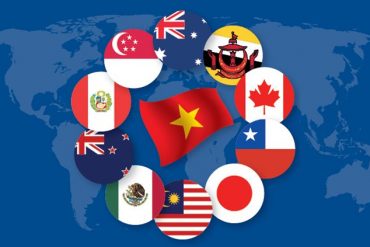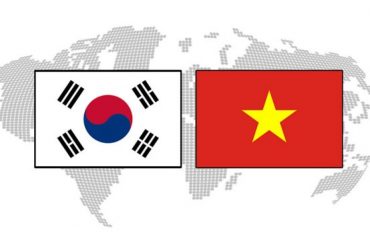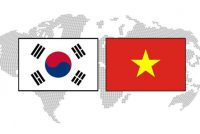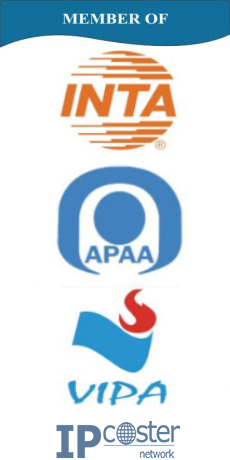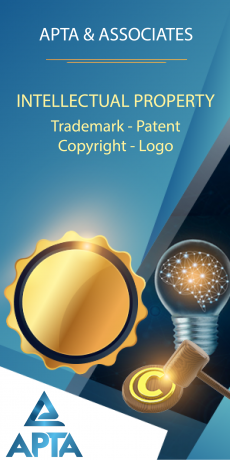The Comprehensive and Progressive Agreement for Trans-Pacific Partnership (CPTPP) has come into effect since January 14, 2019 set a number of requirements for changing Intellectual Property (IP) practices in Vietnam (for detailed information, please see our previous post here). In order to comply with such requirements, the draft to amend and supplement the Intellectual Property Law has been submitted to and ratified by National Assembly of the Socialist Republic of Vietnam on June 14, 2019 with the following points that worth noting:
According to Article 18.27 of the CPTPP, the recordal of a trademark licensing contract is not required to establish the validity of such license.
To promptly comply with this regulation, the National Office of Intellectual Property (NOIP) of Vietnam issued the Official Notification No. 1926/TB-SHTT dated February 01, 2019 which expressly provided the guidance that “since the effective date of the CPTPP, contracts for the use of trademark shall be effective towards a third party regardless of the registration at NOIP (instead of regulation at Clause 2 of Article 148 of the IP Law)”.
Set in the context of the CPTPP, one may wonder whether this only applies between Vietnam and other contracting parties of CPTPP or between Vietnam and any country. With the amendment of the IP Law (Articles 136 and 148), it can be interpreted that contract for the use of trademark between parties (from any country) in the territory of Vietnam is no longer required to record at NOIP to establish the validity and furthermore, the use by a licensee according to such contract is deemed to constitute use by the trademark holder.
Despite of this fact, we are in the opinion that the trademark licensing contract still needs to be recorded at NOIP as a matter of prudence. Since, any trademark licensing contract should be in accordance with the legal provisions of Vietnam and include some compulsory provisions, NOIP will examine the contract’s terms and conditions to determine whether they are appropriate or not.
2. Patent in Vietnam
The CPTPP (Article 18.38) requires its contracting parties to disregard at least information contained in public disclosures used to determine if an invention is novel or has an inventive step, if the public disclosure:
. was made by the patent applicant or by a person that obtained the information directly or indirectly from the patent applicant; and
. occurred within 12 months prior to the date of the filing of the application in the territories of the contracting parties.
Since the old IP Law regulates this grace period is only 06 months, the new IP Law amends Article 60 for extending the scope of exceptions for patent applications filed in Vietnam. In which, an invention shall not be considered having lost its novelty if it is published by the person having the rights to register it (the Patent Applicant) or person having obtained information directly or indirectly from the Patent Applicant provided that the Patent application for registration is filed in Vietnam within 12 months from the date of disclosure. However, these provisions shall not apply for cases where the invention is published in the applications for registration of IP rights or protection titles which are disclosed to public access except the cases where such publication is performed by the IP Authority, or the application for registration is filed by a third party who having obtained information directly or indirectly from the Patent Applicant without permission. On the other hand, the new provisions broaden the possibility of filing patent applications for registration in Vietnam.
3. Legal proceedings against IP infringement in Vietnam
Under the current practice in Vietnam, if a plaintiff fails to succeed in an IP lawsuit, the defendant is unlike to claim Attorney’s fees incurred in that lawsuit since in many cases, the Attorney’s fees are not considered as reasonable fees. However, this inadequacy has been revised by the new Clause 4 added to the existing Article 198 which regulates that the defendant being an organization or individual is entitled with rights to request the Court to order the plaintiff to pay reasonable Attorney’s Fees to the defendant in case the Court concludes that the is no infringement upon IP rights.
Additionally, the concept of “abusing IP protection procedures” has been brought out in the new Clause 5 of Article 198 in accordance with Article 18.74.15 of the CPTPP, in which, an organization or individual suffering damages caused by other party’s act of abusing IP protection procedures, is entitled with rights to request the Court to order the abusing party to compensate the damages caused by the abuse, in which, the reasonable Attorney’s fees may be included.
4. Border measures in Vietnam
The CPTPP (Article 18.76.4) generally requires the competent authorities of its contracting parties, in case of detaining or suspending the clearance of goods that are suspected of being counterfeit trademark or pirated copyrights to inform the right holder (within the period of 30 days) of the names and addresses of the consignor, exporter, consignee or importer; a description of the goods; the quantity of the goods; and, if known, the country of origin of the goods. This requirement is internalized by the amendment of Clause 1 of Article 198.
Under the current practice in Vietnam, when detecting shipment that suspected infringing IP Rights, the relevant Customs Office will timely inform the right holder of basic information related to the shipment such as names of exporter, importer; names, quantity, value and country of origin of the goods. We wonder whether or not any impacts of the given period of 30 days to current practice and additionally, there is a gap between this period of 30 days and the maximum period of 20 working days given to the right holder to initiate the enforcement procedures as regulated in Article 218.2 of the current IP Law as well as Article 76 of the Customs Law. In Vietnam, in addition to the enactment of the Law, it is necessary to issue the guiding legal documents, circulars, decrees to apply that Law In practice, we hope the Government will issue the guiding legal documents for the new IP Law soon.
The above are some noteworthy points of the amended IP Law of Vietnam, should you have any further questions on trademark and patent registration in Vietnam, please do not hesitate to contact us at ageless@ageless.vn.


